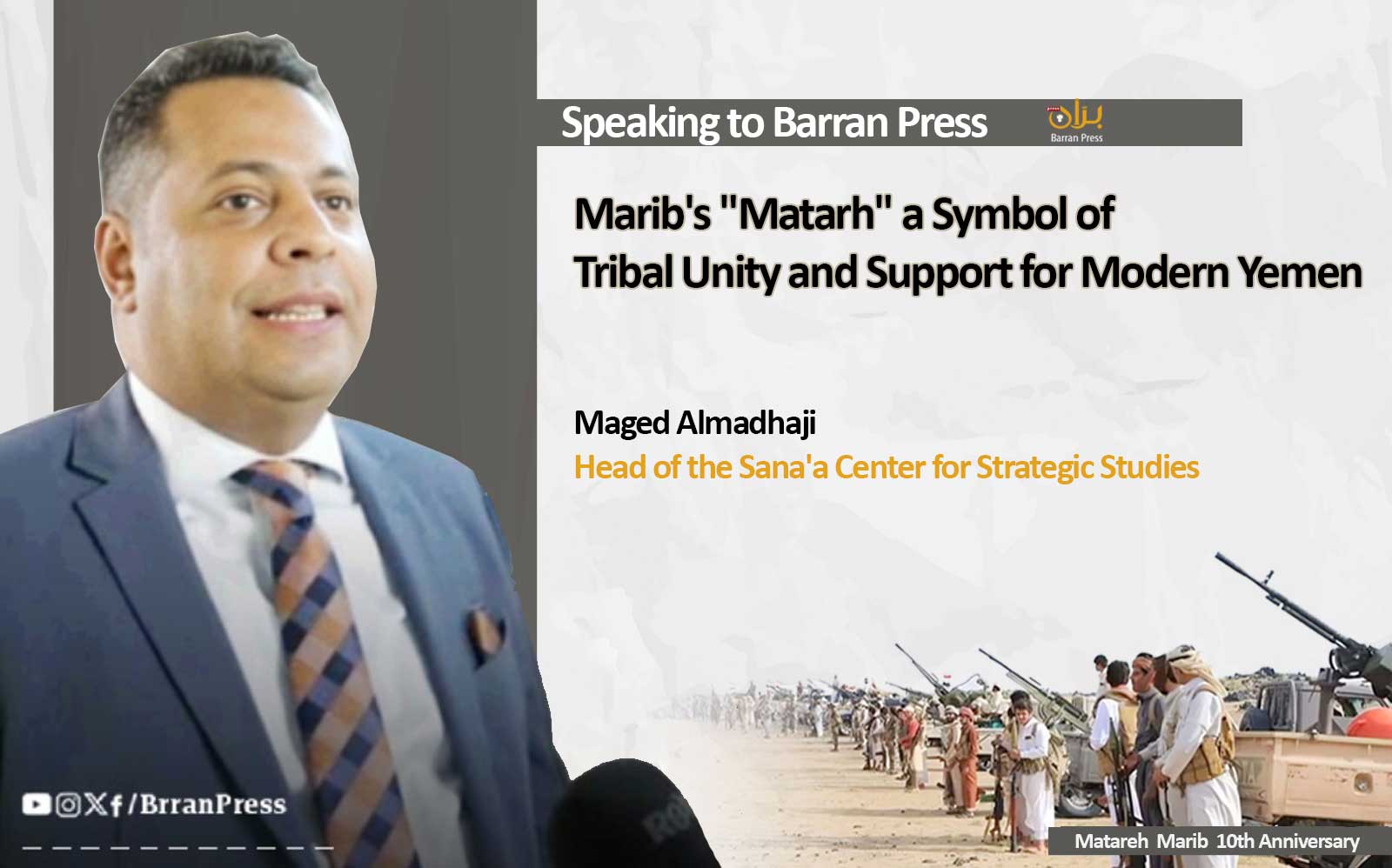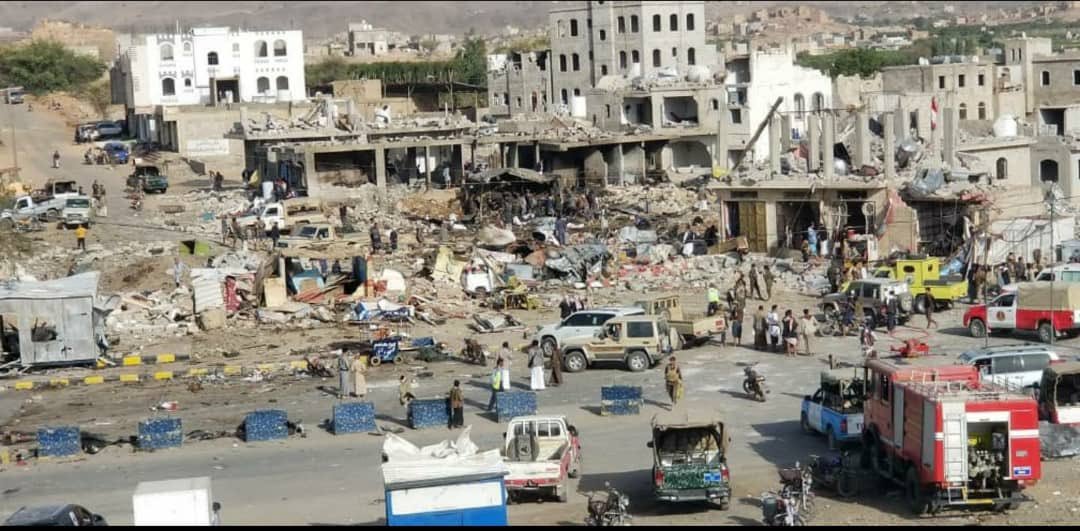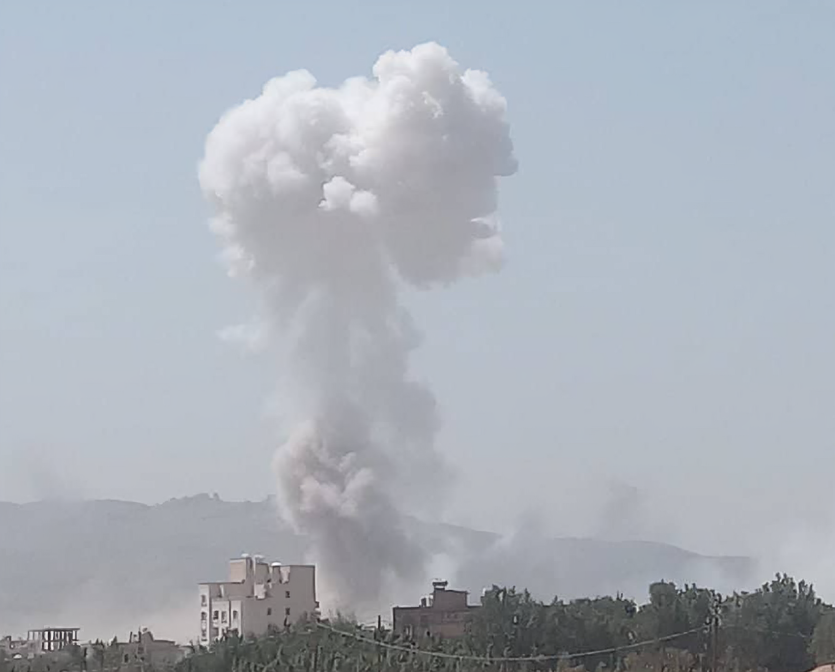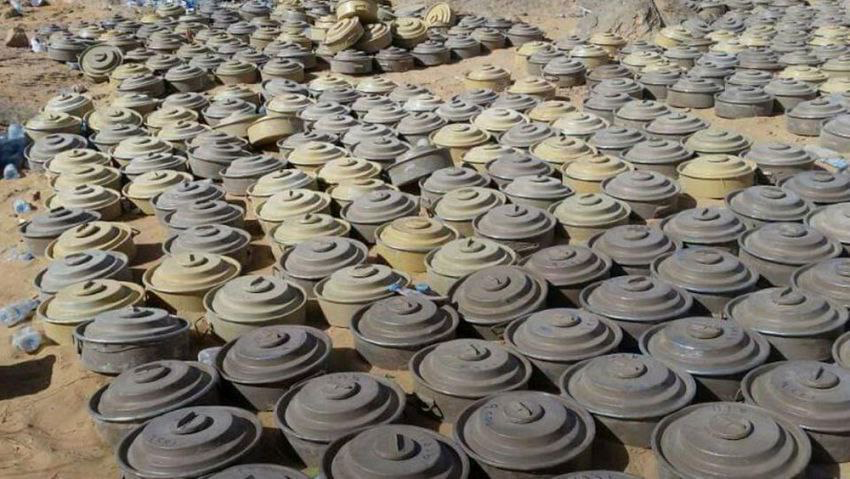
Barran Press
Marib's "Matareh," or popular armed camps, established in 2014, played a crucial role in uniting the community and preparing for the Houthi coup, according to Maged Almadhaji, head of the Sana'a Center for Strategic Studies. In an exclusive interview with Barran Press, al-Madhaji highlighted the significance of the "Matareh" in Marib's context, where traditional social and tribal structures were deeply entrenched.
He explained that the people of Marib, for cultural and social reasons, were not receptive to the Houthi takeover, which aimed to reinstate old forms of control. Al-Madhaji emphasized that the era of Imami dominance had ended for Marib, and its interests lay in the republic.
The "Matareh," he argued, became a symbol of Marib's alignment with modern Yemen, challenging the common perception of tribes as anti-state entities. He lauded Marib's stance as a "guarantor of the state," with its tribes acting as a shield against the destructive Houthi coup.
Al-Madhaji further emphasized that Marib has been a pillar of the republic during the past decade, showcasing the commitment of its tribes and the people it has sheltered to the national struggle. He concluded by calling the "Matareh" a unique experience deserving of respect, reflection, and enduring appreciation.
The 18th of September marks the 10th anniversary of the "Matareh" in Marib, where the city's residents rallied to resist the Houthi assault and prevent them from seizing control of the oil-rich province. The establishment of the "matarha" followed months of Houthi mobilization towards Marib, attacks on tribes in bordering regions, and the capture of Amran in July 2014. This coincided with the Houthi advance towards Sana'a, which they captured on September 21, 2014.
The "Matareh" was notable for the convergence of Marib's tribes, regardless of their political or social affiliations, armed and ready to defend their city. This showcased the remarkable unity that characterized the province, uniting tribes, political parties, and local authorities.





